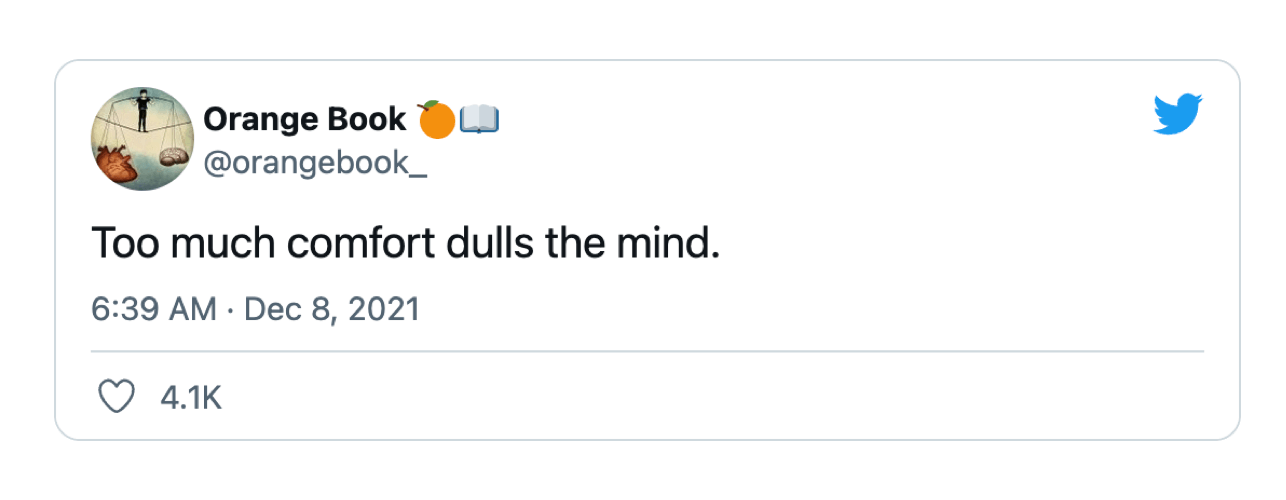The limits of conventional wisdom
All bits of wisdom have limits, boundaries, thresholds.
Usually, it's your individual context that will determine whether advice is wise (or unwise).
According to James Clear, we should consider the limits of the wisdom you receive:
Everything is an oversimplification. Reality is messy and complex.The question is whether it is a useful simplification.Know the limitations of an idea and you can apply it to great effect—despite the messiness of reality.
I also like this idea from Elizabeth Earnshaw that a lot of popular wisdom has a "missing half."
A few of her examples:
- "You can't change other people... and you might influence them to change."
- "Self-care isn't selfish... and sometimes we call things 'self care' that actually are kind of selfish."
You can see this dynamic at play in many of the quotes we see on Twitter. For example, take this popular tweet:
I've seen this quote shared a few times. However, it has a missing half:
"Too much comfort dulls the mind, and... sometimes our minds really need comfort in order to thrive."
I believe that good wisdom invites this kind of tension; it's comfortable with duality, context, and nuance.
Cheers,
Justin Jackson
twitter.com/mijustin

